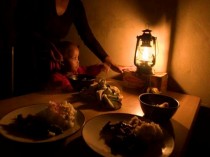By Anthony Sadar and Susan Cammarata, Washington Times
Thursday, March 20, 2014
On college campuses throughout the nation, spring semester is winding down and many faculty and students will soon be heading out for a long summer break. Some professors never really leave the schoolyard, though. It’s their loss, and ours.
Daily life on the college campus is something of an unreality. Academicians are frequently surrounded by students who admire or even fear them, and they’re surrounded by like-minded, congenial colleagues. Thus, these educators and academic researchers live in something of the world’s largest echo chamber.
Within this ego-inflating environment, an academic research community must operate. How well can scientific discoveries be made, though, when blinded by the brilliance of vainglory, and when ideology can so easily trump objectivity?
Proverbs 16:18 warns that “Pride goes before destruction, and a haughty spirit before a fall.” In an academic sense, we can say that arrogance leads to ignorance and thus, a haughty professor can quickly become an arrogant ignoramus. The expression, “Don’t confuse me with the facts, my mind is already made up,” can readily apply.
In contrast, it can be safely stated that good scientists practice humility.
Look at the world of climate science. In this world dominated by collegiate atmospheric modeling, a fundamental challenge has been - as in science, in general - to match theory with reality. Professors Richard McNider and John Christy of the University of Alabama in Huntsville clearly demonstrated this in a Feb. 20 op-ed in The Wall Street Journal, which included a graph displaying the miserable match between climate predictions and observational reality. Climate models built to make the connection between theory and reality, they wrote, have been “so consistently and spectacularly wrong.” Although currently an academician, Mr. Christy was once a missionary teacher in Africa and witnessed the effects of abject poverty and the potential benefit of low-cost energy for the masses. For those who haven’t left the comfort of the Ivory Tower, it is those souls in Third World nations in need of basic resources who are often forgotten in the process of composing climate theories that bolster anti-industrial campaigns.
In climate science, the mismatch of idealism with realism is likely due to the overwhelming influence other factors, such as water, have on climate. Yet, the political focus and funding is directed toward demonstrating that “greenhouse gases,” such as carbon dioxide, which makes up only 0.04 percent of the atmosphere, is responsible for climate change. It’s little wonder, then, that climate reality refuses to conform to theoretical fantasy.
Reality should supersede theory. Still, the Obama administration and the board of the World Bank take shaky climate-change theory to a potentially disastrous level for people eking out a marginal existence. Last June, based on his faith in climate science, President Obama announced that the United States would halt its investment in overseas coal projects and encouraged multilateral banks to do the same. Last July, the World Bank initiated a new energy strategy designed to limit financing for new coal-fired power projects.

Apparently, at the White House and the World Bank, a “poverty-fighting institution,” saving the atmosphere from the small amount of extra greenhouse gases emitted by modern fossil-fuel plants trumps alleviating age-old human suffering.
After all, there’s a messy world beyond the schoolyard where reality doesn’t always play by the rules, even if those rules take the form of vaunted academic theories and models. However, just because some ideas aren’t popular within the ivy-covered walls doesn’t mean they’re not popular in the school of hard knocks. That’s where tough love delivers an education that more closely aligns with reality.
The fact is that in a world of plenty, too many have next to nothing. Those ensconced within a largely left-leaning academia where rhetoric is highly esteemed must face the fact that their theories are partially responsible for a false reality that perpetuates the poverty of unseen others.
Anthony J. Sadar, a certified consulting meteorologist, is author of “In Global Warming We Trust: A Heretic’s Guide to Climate Science” (Telescope Books, 2012). Susan T. Cammarata is an environmental and family lawyer in Pittsburgh, Pa.




